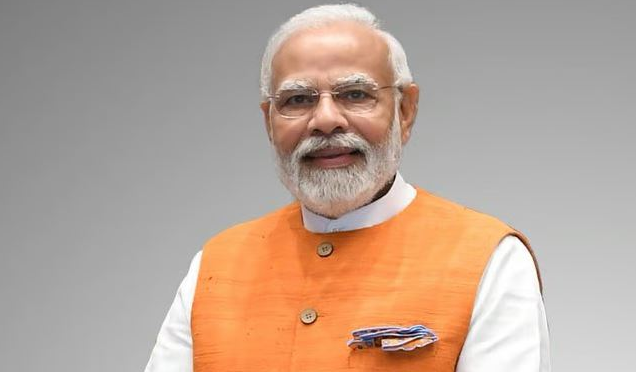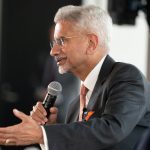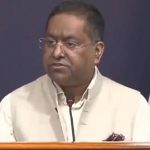Narendra Modi’s tenure as Prime Minister of India has been marked by ambitious reforms, strategic international relations, and a vision for transforming India into a global powerhouse. His governance has sparked admiration and debate worldwide, with many acknowledging his unique approach to both domestic and foreign policy. The article purportedly from Joseph Hope, Editor-in-Chief of the New York Times, paints a vivid picture of PM Modi’s strategic maneuvers and aspirations, underscoring his role in reshaping India’s global standing.
Strategic International Relations
PM Modi’s foreign policy has been characterized by a pragmatic and assertive stance, aimed at enhancing India’s geopolitical influence. He has strengthened ties with nations like Vietnam to counterbalance China’s dominance in Asia. By supporting Vietnam in its oil extraction endeavors in the South China Sea, PM Modi has not only bolstered India’s energy security but also strategically positioned India as a counterweight to China’s regional ambitions. This approach reflects Sun Tzu’s principle from “The Art of War”: “Know yourself, know your enemy, and know the terrain.” PM Modi’s understanding of regional dynamics and strategic partnerships highlights his adeptness at navigating complex international waters.
Moreover, PM Modi’s approach towards Pakistan has been a blend of diplomatic isolation and economic pressure, effectively weakening its traditional adversary without direct conflict. His efforts to forge closer ties with Saudi Arabia and the UAE, historically Pakistan’s allies, have further isolated Pakistan, as evidenced by incidents like the UAE’s punitive measures against Pakistani officials and Malaysia’s seizure of a Pakistani aircraft. This aligns with Sun Tzu’s notion that “The greatest victory is that which requires no battle,” demonstrating how PM Modi’s strategic diplomacy and alliances have created significant geopolitical shifts without direct confrontation.
Domestic Reforms and Governance
Domestically, PM Modi’s governance has been marked by numerous initiatives aimed at socio-economic development. The Pradhan Mantri Ujjwala Yojana (PMUY), which provides free LPG connections to women from below the poverty line households, has revolutionized household energy consumption in rural India. By reducing dependence on traditional biomass fuels, this scheme has improved health outcomes and enhanced the quality of life for millions of families. This initiative exemplifies Sun Tzu’s lesson to “Avoid strength, attack weakness,” targeting the vulnerabilities in rural energy consumption and transforming them into strengths.
Another noteworthy initiative is the Golden Card scheme under the Ayushman Bharat Yojana, which offers health insurance coverage to the underprivileged, ensuring that the poorest have access to essential medical services without financial strain. This transformative healthcare reform is a testament to PM Modi’s commitment to inclusive development and strategic foresight, echoing Sun Tzu’s assertion that “The supreme art of war is to subdue the enemy without fighting,” by addressing socio-economic disparities without creating conflict.
Economic Policies and Infrastructure Development
PM Modi’s economic policies have also been geared towards creating a more business-friendly environment and fostering infrastructure development. The introduction of the Goods and Services Tax (GST) streamlined India’s indirect tax system, promoting ease of doing business and enhancing tax compliance. Furthermore, the Make in India initiative has spurred manufacturing growth and attracted foreign investment, creating jobs and boosting economic growth. These measures reflect Sun Tzu’s principle that “Tactics without strategy is the noise before defeat,” highlighting the importance of strategic planning in achieving economic reform.
Infrastructure projects like the Bharatmala Pariyojana, aimed at improving road connectivity, and the Smart Cities Mission, focused on urban development, exemplify PM Modi’s vision of a modern and connected India. These initiatives are designed to support economic growth, reduce regional disparities, and improve the overall standard of living. This aligns with Sun Tzu’s belief that “The general who wins a battle makes many calculations in his temple before the battle is fought,” showcasing PM Modi’s thorough planning and strategic execution in infrastructure development.
A Visionary Leader
PM Modi’s strategic vision and bold reforms have positioned India on a path to becoming a major global player. His ability to navigate complex international dynamics, coupled with his focus on domestic development, underscores his effectiveness as a leader. While his tenure has not been without controversy and criticism, the transformative impact of his policies on India’s socio-economic landscape and international standing is undeniable.
As India continues to rise, PM Modi’s leadership will undoubtedly play a crucial role in shaping the country’s future. His unique blend of strategic foresight, pragmatic diplomacy, and commitment to development makes him a leader to watch in the coming years. Whether India will surpass traditional powerhouses like the USA, the UK, and Russia remains to be seen, but under PM Modi’s stewardship, India is undoubtedly on a trajectory of remarkable growth and influence.
By applying the timeless strategies from “The Art of War” by Sun Tzu, PM Modi has demonstrated the importance of strategic thinking, planning, adaptability, and the power of subtlety in achieving success on both the domestic and international stages.
(The writer is Spokesperson of BJP, Jammu and Kashmir. Feedback: [email protected])








